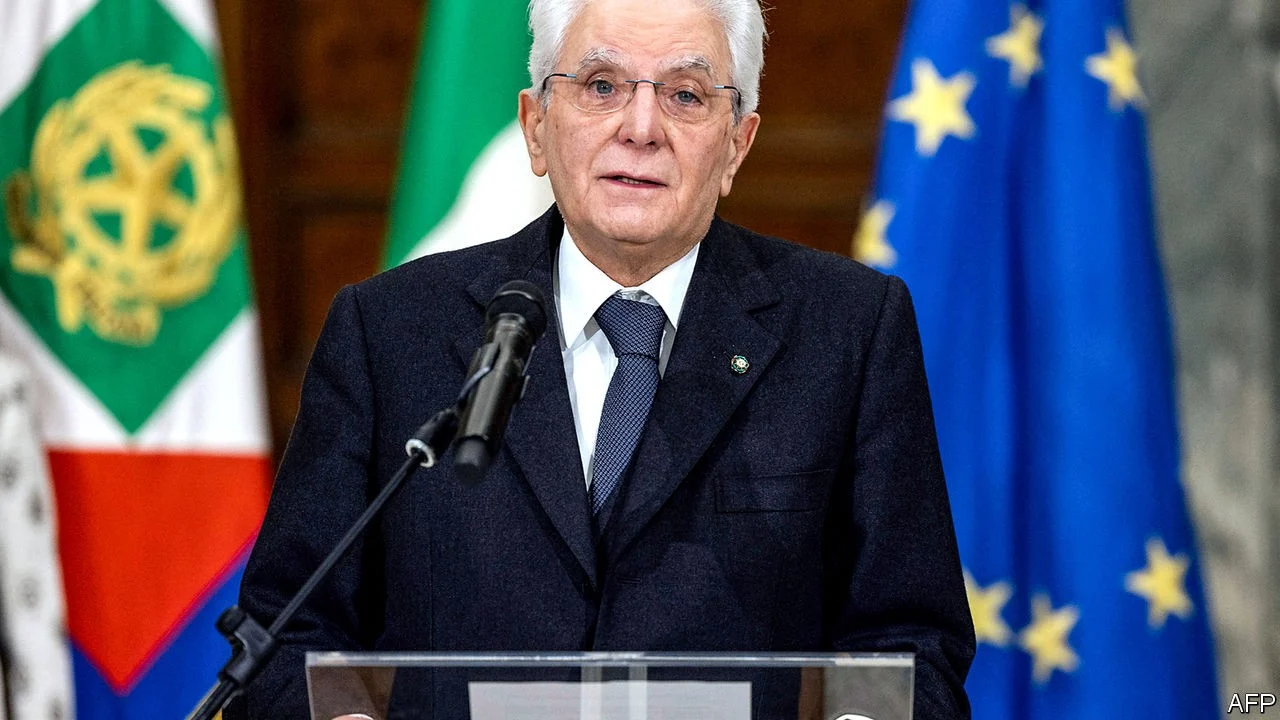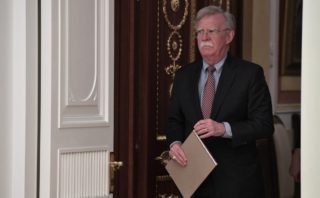
ROME — AFTER SIX days and eight ballots, Sergio Mattarella was re-elected president of Italy on January 29th. In one way, the choice of the electoral college of 1,009 national lawmakers and regional delegates was absurd, since the 80-year-old incumbent had repeatedly indicated that he did not want a second term. But viewed from another perspective, his reinstatement was inevitable and welcome: any other outcome would have destabilised the governing coalition and perhaps have precipitated an early election.
The decision was almost forced on party leaders by their rank and file, who cast 387 votes for the popular Mr Mattarella in the penultimate ballot. In the end, it was backed by all the parties in the broad, multiparty government headed by Mario Draghi, a former head of the European Central Bank. That, in turn, averts the collapse of the coalition and a snap general election, in which, the polls suggest, the populist right would have triumphed.
The re-election of Mr Mattarella also frees the talented Mr Draghi, who began the election as favourite, to remain prime minister. That is by far the more important role, especially at what is a supremely testing time for his country. Over the coming months the government must adhere rigidly to a timetable of reforms and investments dictated by the European Commission in order to receive its full €200bn ($223bn) share of the EU’s post-pandemic recovery funds. Whether it succeeds will do much to determine whether Italy finally pulls out of the stagnation that has blighted its economy for two decades. The fortunes of Italy’s economy, in turn, will help determine whether Europe as a whole makes a successful recovery from the pandemic or will be dragged down by its most sluggish big economy.
There have been concerns that Mr Draghi’s failure to get himself elected might damage his standing and thus his effectiveness as prime minister. But Mr Draghi’s ambitions have not been dashed so much as delayed. If, as seems likely, Mr Mattarella steps down before the end of his seven-year term, Mr Draghi would still have a good chance of succeeding him.
Moreover, although the election has indeed opened deep rifts both between and within the governing parties, that has actually reinforced the idea that Mr Draghi, as much as Mr Mattarella, is indispensable. The biggest casualty was the fragile unity of the Italian right, already split by the formation last year of Mr Draghi’s heterogenous government. While the Northern League and Silvio Berlusconi’s Forza Italia party joined it, the far-right Brothers of Italy remained in opposition.
Since 2013, when the populist and hard-to-classify Five Star Movement scooped a quarter of the vote in a general election—and even more so since 2018 when it took one-third—neither right nor left have commanded a majority in parliament. The same was true of the electoral college formed to elect the president. That did not stop Matteo Salvini, the leader of the League, which had the second-biggest representation in the electoral college, from trying to impose a candidate of the right despite being outnumbered. His choice, Elisabetta Casellati, the speaker of the Senate, was always doomed. But she—and therefore Mr Salvini—failed spectacularly. Taking advantage of the secret ballot, around 70 representatives of the right withheld their support for Ms Casellati. Many were reckoned to be members of her own party, Forza Italia, hoping perhaps for a president with less conservative views on issues such as abortion.
Mr Salvini then made things worse by backing the reinstatement of Mr Mattarella without apparently consulting his main ally, Giorgia Meloni of Brothers of Italy. An irate Ms Meloni tweeted: “Salvini suggests everyone goes and begs Mattarella to [take up] another mandate. I don’t want to believe it.”
If Mr Salvini was the outstanding loser, then the nearest to a winner was the leader of the centre-left Democratic Party, Enrico Letta. By refusing to talk to the right until it agreed to discuss compromise options, he ended up with an outcome he had always advocated. The same was less true of Giuseppe Conte, the leader of the Five Stars. He had argued for a woman president, though many of the Movement’s electors wanted (and voted for) Mr Mattarella. At no point did he appear to be in real command of his troops.
Mr Mattarella appears resigned to his fate. After 759 of the 983 electors present voted to keep him in office, he pledged not “to evade the duties to which one is called and must naturally prevail over other considerations”. But if the outcome is a mixed blessing for him, it is a boon for Italy. A political crisis has been averted, at least for another year or so, and the centre has been strengthened at the expense of the extremes.




